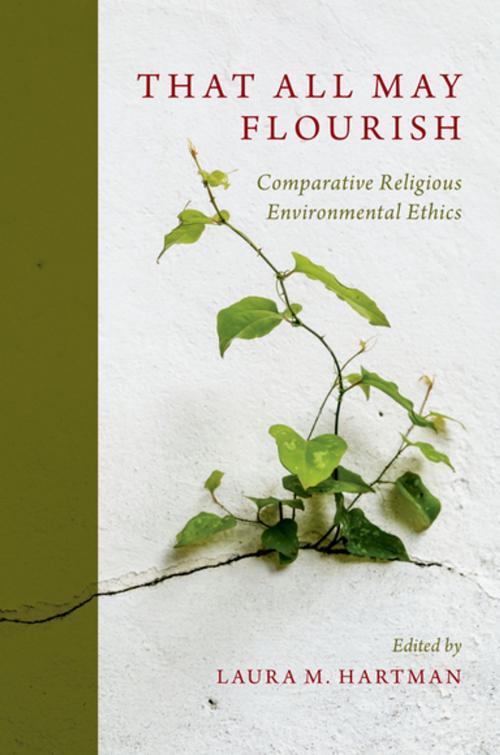That All May Flourish
Comparative Religious Environmental Ethics
Nonfiction, Religion & Spirituality, Reference, Comparative Religion, Philosophy| Author: | ISBN: | 9780190882693 | |
| Publisher: | Oxford University Press | Publication: | May 31, 2018 |
| Imprint: | Oxford University Press | Language: | English |
| Author: | |
| ISBN: | 9780190882693 |
| Publisher: | Oxford University Press |
| Publication: | May 31, 2018 |
| Imprint: | Oxford University Press |
| Language: | English |
Can humans flourish without destroying the earth? In this book, experts on many of the world's major and minor religious traditions address the question of human and earth flourishing. Each chapter considers specific religious ideas and specific environmental harms. Chapters are paired and the authors work in dialogue with one another. Taken together, the chapters reveal that the question of flourishing is deceptively simple. Most would agree that humans should flourish without destroying the earth. But not all humans have equal opportunities to flourish. Additionally, on a basic physical level any human flourishing must, of necessity, cause some harm. These considerations of the price and distribution of flourishing raise unique questions about the status of humans and nature. This book represents a step toward reconciliation: that people and their ecosystems may live in peace, that people from different religious worldviews may engage in productive dialogue; in short, that all may flourish.
Can humans flourish without destroying the earth? In this book, experts on many of the world's major and minor religious traditions address the question of human and earth flourishing. Each chapter considers specific religious ideas and specific environmental harms. Chapters are paired and the authors work in dialogue with one another. Taken together, the chapters reveal that the question of flourishing is deceptively simple. Most would agree that humans should flourish without destroying the earth. But not all humans have equal opportunities to flourish. Additionally, on a basic physical level any human flourishing must, of necessity, cause some harm. These considerations of the price and distribution of flourishing raise unique questions about the status of humans and nature. This book represents a step toward reconciliation: that people and their ecosystems may live in peace, that people from different religious worldviews may engage in productive dialogue; in short, that all may flourish.















